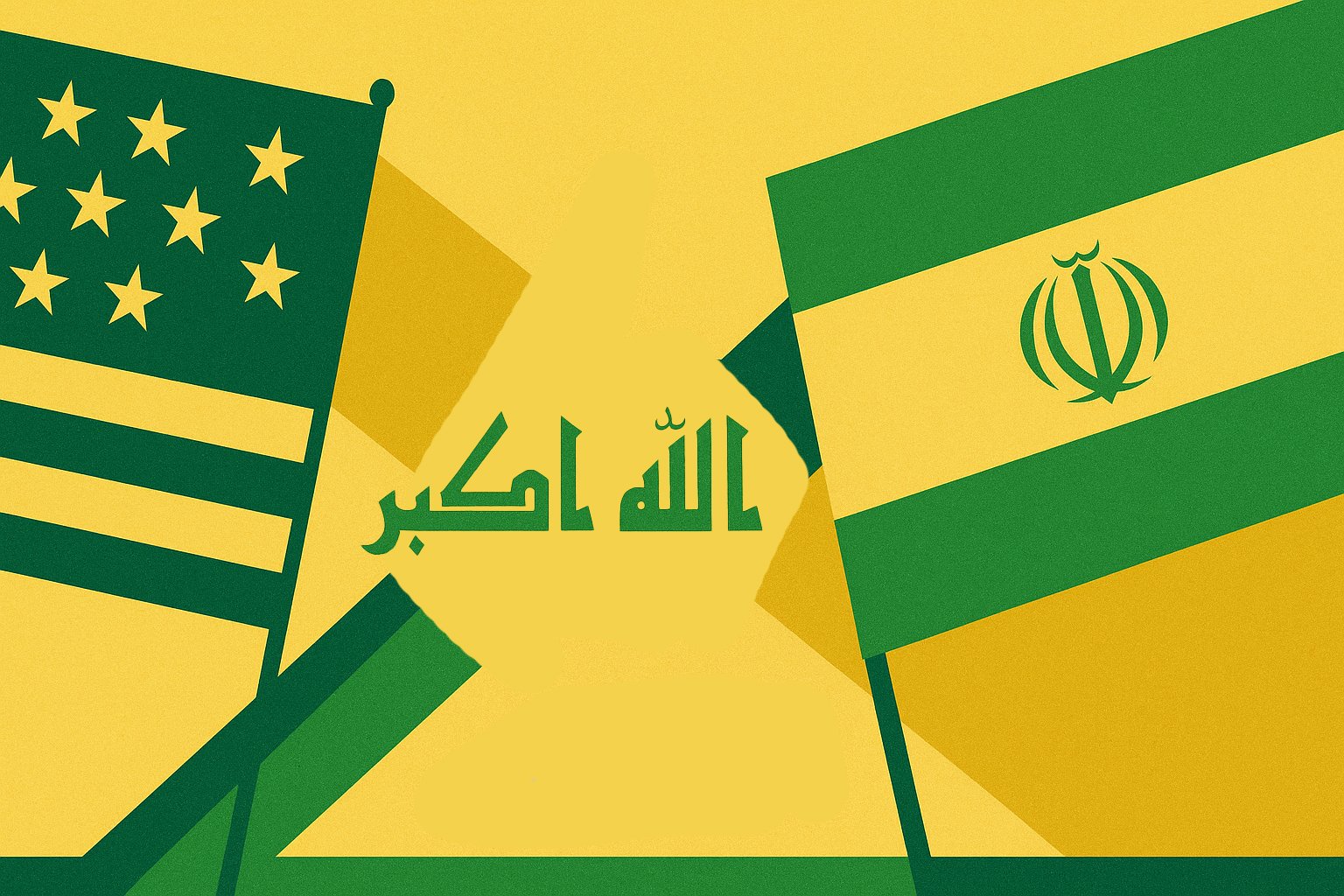As the Israel–Iran War Concludes, the U.S. Moves to Reset Iraq’s Political Order

In the past week, two interconnected developments have unfolded in Iraq. The U.S. has stepped in to mediate between Erbil and Baghdad over the KRG’s unpaid salaries and stalled oil exports. Simultaneously, Washington has applied financial pressure on Iraq to halt salary payments to pro-Iran Shia militias. Adding to the reshuffling, Iraq’s Federal Court chief justice—Jassim al-Umayri, a figure central to controversial rulings on the KRG and Sunni leadership—has been removed. These events appear to mark the early contours of a broader U.S. effort to reshape Iraq’s internal balance of power following the collapse of Iran’s regional deterrence.
Context: Since the Hamas-led attack on Israel on October 7, 2023, the Middle East has undergone a dramatic realignment. The longstanding regional balance, built on a deterrence dynamic between Iran’s network of armed proxies and Israel’s U.S.-backed military edge, has unraveled. In recent months, Israel has gone on the offensive—dismantling Hezbollah’s core capabilities, accelerating the collapse of the Assad regime, and degrading Hamas’s infrastructure. On June 13, Israel took the unprecedented step of launching direct attacks on Iran. While the Iranian regime has survived, its capacity to project power has been severely diminished.
As Israel turns its attention to Yemen’s Houthis with reports of an impending air campaign, Iraq and its powerful Shia militias—arguably Iran’s most entrenched proxy foothold—have become the next major arena. But unlike in Yemen or Lebanon, the U.S. appears to be pursuing a bloodless, political recalibration in Iraq rather than a military confrontation.
Analysis: Today, a crucial meeting between the KRG and Baghdad is taking place, but what’s missing from the headlines is that this meeting was initiated and is being mediated by the US, with American diplomats present to facilitate a breakthrough in Erbil-Baghdad negotiations. To find middle ground, the US is pushing for the Iraqi government to send KRG salaries immediately—a simple but urgent demand, as KRG public employees haven’t been paid for two months and public anger is mounting. Since the KRG is a key component of the US strategy to reshape Iraq, Washington doesn’t want the region destabilized.
Interestingly, while the US is pushing for the resumption of KRG oil exports to balance demands—as unilateral Iraqi concessions might destabilize factions within the Iraqi government willing to work with the US—there’s a specific American requirement: oil exports must flow through the KRG pipeline, not the Kirkuk-Turkey pipeline operated by the Iraqi government. This is a crucial signal: Washington seeks not just a resolution but a recalibrated energy arrangement that reinforces the KRG’s autonomy without provoking Baghdad’s collapse. Additional U.S.-backed terms include increasing the KRG’s monthly handover of domestic revenue from 50 billion to 150 billion dinars. Crucially, the US insists that resumption should only occur in select oil fields, making it partial rather than comprehensive.
While technical details are expected to be negotiated, the bigger picture is what matters. This is happening alongside a similar US push to cut PMF salaries—a completely opposite approach with the same logic. Given that this marks the first time Shia militia salaries have been delayed amid scorching heat and upcoming national elections, the goal is precisely the opposite of what the US wants for the KRG: to disintegrate the Shia militias and force their dismantlement and integration into the national Iraqi army. This demand has been on the table for months following the collapse of Iran’s regional order, but the US now appears to have activated its threat to cut Iraq from its financial lifeline—the US Federal Reserve account where nearly all Iraqi oil export revenues flow and which finances Iraq’s entire budget.
This coincides with the ousting of Jassim al-Umayri as Federal Court Chief Justice. While it is partially attributed to a power struggle between al-Umayri and Iraqi Judicial Council President Faiq Zaidan—one of Iran’s key allies in Iraq—this cannot be dismissed as anything less than the end of an era. Al-Umayri has been accused of deeply politicizing the court through controversial decisions regarding KRG salaries, KRG elections, and the ousting of powerful Sunni leader Mohammad al-Halbousi from the parliamentary speakership, leading al-Halbousi to call for al-Umayri’s removal. The new Federal Court head appears close to Faiq Zaidan, but this can also be seen as a reshuffling that marks the beginning of a new era amid broader changes across the country.
Before the recent KRG salary crisis began and before the KRG’s energy deals with the US that angered the Iraqi government, KDP President Masoud Barzani launched seemingly unprovoked attacks on the Iraqi government over salaries. This offensive appears to have been Barzani’s attempt to capitalize on anticipated regional changes and likely Israeli attacks on Iran, gambling that the war might lead to Iran’s regime collapse and perhaps also the fall of Baghdad’s pro-Iran Shia government. However, this appears to have been a miscalculation regarding US intentions.
While the US is pushing to reshape Iraq, it’s not pursuing what Barzani may have envisioned. The US does not want Iraq to partition—something Barzani might have counted on—as this would trigger a new cycle of violence that America has no interest in fostering. Instead, Washington wants change from within. The US strategy involves remaking countries without altering boundaries: observe Syria and Lebanon, once linchpins of Iranian regional deterrence against Israel. A similar, albeit more nuanced, strategy appears to be taking shape in Iraq, with key focus on the primary instrument of Iranian influence: the Shia militias.
For the KRG, this means preservation of the status quo. Washington continues to view the region as a geopolitical “grey zone”—a buffer between Iran and Turkey, and a stabilizing lever in Iraq’s broader political system. For the Iran-aligned militias and judicial figures, however, the writing is on the wall: the U.S. is no longer content with containment. It is now in reset mode.









